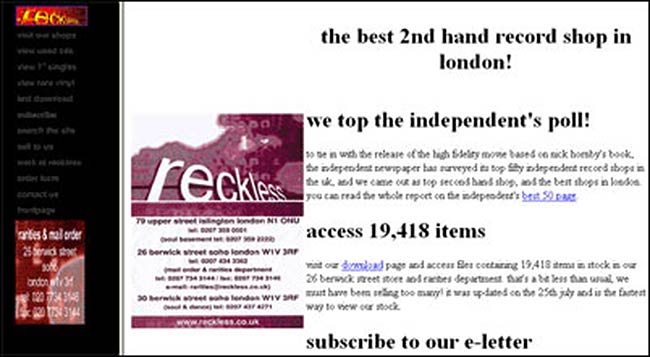“In Praise of Side Projects” - Alexander Baxevanis at London IA
Alexander Baxevanis started his talk at January’s London IA with a confession - “I’m addicted to side projects.”
Now, I’ve got some sympathy with Alex’s problem here. What with the job, this blog, London IA, EuroIA, my writing role at FUMSI, editing ebooks for the Guardian, keeping my programming going, writing guest spots for places like TheMediaBriefing, making music, frequent conference appearances and running training days, I’ve got quite a lot of things that could be considered side projects myself. His involved lots of Arduinos and bikes and Arduinos in bikes, and Alex boasted that of all his projects, he’d even actually finished two of them ;-)
Alex set out five rules for running a side project:
- Find something you want to learn
- Find a partner
- Shout about it
- Keep track of where you are
- Don’t get disappointed easily
Alex valued the idea of collaboration in a side project. Find someone with the opposing skills to you, he suggested, and you’ll end up with a better outcome, and both learn from each other. Sometimes people worry about sharing the credit for a project they are passionate about, but Alex suggested that sharing credit was better than getting no credit at all because nothing ever got finished. Having a partner spurs you on to meet deadlines and finish tasks you’ve promised. He also thought a physical space was useful for a project - whether that is the proverbial shed, or a collaborative environment like Hackspace.
Keeping a record and telling people about your projects were also important. By talking about them, you get the dread nagging reminder of people asking how you are getting along with such-and-such, but you also get the serendipity of people recalling you are interested in a topic and suggesting ideas, resources and events to you. I keep track of my projects with a whiteboard in the kitchen - which also means it is a very visible record of whether I am working on the things that pay me or make money, or whether my focus is elsewhere and I am getting behind with things I need to do.

A whiteboard in the kitchen helps keep my side projects on track
I laughed a lot at one part of Alex’s talk. He said one of the best things about side projects is that they are a great way to learn. If you want to learn HTML & CSS, he said, don’t get yourself something like a Sams Learn HTML in 21 days book, get started by trying to build something you want to build. That way you’ll focus your learning on what you need to know.
I laughed, because when I first started to learn how to make the interwebs work in the 1860s, I didn’t have a computer at home, and a Sams Learn HTML4 in 21 days was exactly what I used to get myself started - writing out example code on paper and then typing it into the work PC in my lunch hour to see if I’d got it right.
But I didn’t really get started until I had a project - to rebuild the Reckless website. Certainly today my efforts to scratch along with Python are based on learning what I need to get my prototypes working, not some great plan to become a Python expert.

The first dreadful website I ever built was a side-project at work
One of the questions Alex was asked at the end was whether his side projects actually helped with his work. He explained that as much as he loved his job, it was never going to be “100% of what I want to do” - an advantage that side projects have. And during the talk he’d given some examples of “side projects done good” - the World Wide Web you are reading this on evolved out of a Tim Berners-Lee side project called ENQUIRE which was exploring hypertext, and the 6502 chip which transformed home computing was the result of engineers tinkering around the edges when they thought they could do better than the specifications and ambitions of the company they were working for.
Alex has published his slides and text on Speaker Deck, and Richard Wand has also blogged about the talk.
Next...
The final talk at January’s London IA was my amazing colleague Mary Hamilton, with her tale of “Verbs. Zombies. UX.” I’ll be publishing my notes from that next.
“London IA: Notes from the talks”
Martin Belam, foreword by Ann McMeekin Carrier
London IA is a network of designers, information architects and thinkers. Since 2009 the group has been holding regular meetings featuring talks about UX, or of interest to UXers. This ebook is a compilation of my notes from those evenings, featuring talks by Andy Budd, Giles Colborne, Cennydd Bowles, Claire Rowland, Jason Mesut, Ben Bashford, Chris Heathcote, Dan Lockton, Relly Annett-Baker, Michael Blastland, Margaret Hanley and Richard Rutter amongst others. Topics covered range from ubicomp to psychology, from learning how to sketchnote to how to write a UX book, and how to improve digital design through diverse routes like copy-writing, designing for doubt, learning from music technology or taking care of typography.
“London IA: Notes from the talks” is available for Kindle for £2.47.
